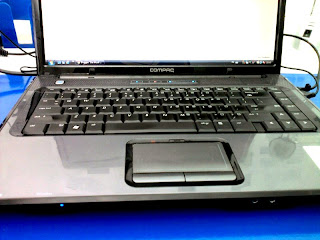The time of the year is there to apply for summer internships, summer jobs, college programs and so on. Usually, interviews will be part of the admission procedure, regardless of what you apply for. This post will mainly be about preparing yourself for the contents of the interview and not so much about your appearance during the interview because although your appearance is important, the contents may be more important.
First thing to do is to find which person(s) within the organization is/are going to interview you. Knowing this is useful so that you can search for this/these person(s) on the Internet to get an idea of his/her/their interests and activities. Once you know this, you can tailor your interests to fit his/hers/theirs. It may also make you less nervous to know who sits opposite of you.
The second thing to do is find out what you can add to (a department) the organization. For an employer or university, it is important to know what you can add to their organization so that they can see whether your needs match theirs. If they have a certain need and you happen to be able to bring them that need, there is a perfect match between their needs and yours. During the interview, knowing what you can add also gives fuel to a discussion about which person(s) within the organization can help you add your knowledge and skills to the organization.
 |
| And of course, the things mentioned above can be found on the Internet. |
Thirdly, you may want to print stuff. Your motivational letter and résumé you submitted are the documents they go by when preparing the interview with you, so you will look more prepared if you printed your own stuff compared to "excuse me, may I take a look at the letter you have there?" Your printed documents may also serve as a reminder during the interview.
Fourth, now that you have taken a look at the documents you have submitted, put yourself in the shoes of those who are going to interview you and consider what they might ask based upon those documents. Which things may require further explanation? Are there things unclear in your letter or résumé? Be prepared to answer this kind of questions, because they will be asked.
 |
| Potentially other relevant documents for me. |
Fifth, after printing the documents you have submitted, also take other possibly relevant documents with you. Diplomas and certificates are evidence for what you have written down on your résumé or in your letter. They may also serve as another reminder of things they may ask about. It may, for example, be helpful to have a list of your study results with you in case questions arise about it during the interview. Seeing the course name and the grade your teacher gave you may also help you remind how you obtained that grade.
The last thing to do seems like a no-brainer, but take notes of everything you might be asked about as you are preparing yourself for the interview. Write down key-words that just must be used in your answers and also take notes of the questions that arise from your side as you are getting ready. One reason for doing this is that you will definitely forget some of the things you wanted to say/ask as you sit there. The nerves will grab you, empty your brain, and make you lose some of your memory. The other reason is, again, that you come across prepared. Coming across prepared is always a plus, because in your work and study, you will also have to be prepared for tasks. Being prepared also shows interest in the function/position and the organization.
These are my tips for preparing for the contents of a job/application interview. Have you ever been so nervous during an interview that you forgot what you wanted to say/ask? Have you done some of the above for interviews or maybe you have never even had an interview yet in your life? Let me know!



